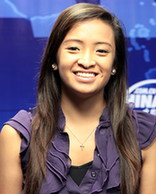Experts are increasingly concerned about lax rules for sperm donors in the United States and Canada, where some men have anonymously fathered dozens of children.
Unlike in some countries such as France and Britain, there are no laws in either Canada or the US officially limiting the number of children who can be born from a single donor, the Canadian Health Ministry said.
An international norm places the ceiling at 20 pregnancies from the same donor. In Denmark, the limit on a single donor is 25 births. And most sperm banks set their own regulations.
Some families try to create a "designer baby" by carefully choosing the donor from a catalog, drawn by his particular genes or characteristics, such as eye color or IQ level.
The practice has led to the repeated use of certain donors sperm, and the issue has stirred recent debate in Canada and the US, spawning a number of films and documentaries.
Last month the US Style Network channel launched a reality series called Sperm Donor in which one donor, Ben Seisler, 33, tells of his surprise on going onto the registry and of learning that "to date I know of around 70 kids".
Specialists warn over-reliance on one donor increases the risk of the transmission of genetic diseases and malformations, and some say there are dangers of inadvertent incest between half-siblings.
"We can't exclude the possibility that children of one donor can meet and have sex, and children, and indeed the possibility that the donor himself could have sex with his daughter," said Barry Stevens, a documentary-maker born of a sperm donor, who has made films about his search for his real father and his half-siblings.
Since 2004, donors have no longer been paid in Canada, leading to the depletion of stocks and forcing clinics to rely heavily on imports, especially from the US.
The popularity of certain specific donors has also had a major impact. The US-based Donor Sibling Registry, which helps children get in touch with their half-brothers and sisters, highlighted the growing number of such families.
"We have a group of 150 children of one donor, and this number keeps growing," said Wendy Kramer, executive director and co-founder of the registry which she established in 2000 to connect so-called donor families.
"It's overwhelming for those kids, and we don't know how they will react."
Her group allows donor children to initiate contact anonymously at first. The donor is identified only by a number, but children can see how many half-siblings they likely might have.
(中國日報網(wǎng)英語點津 Helen 編輯)

About the broadcaster:

?Christine Mallari is an intern at China Daily. She was born in Chicago, Illinois and raised in a nearby suburb before moving for college. After recently graduating from the University of Iowa with a degree in English, Journalism and Mass Communications, she moved to Beijing to work with China Daily. Though she has been working in journalism since high school, this is her first time doing so abroad.
